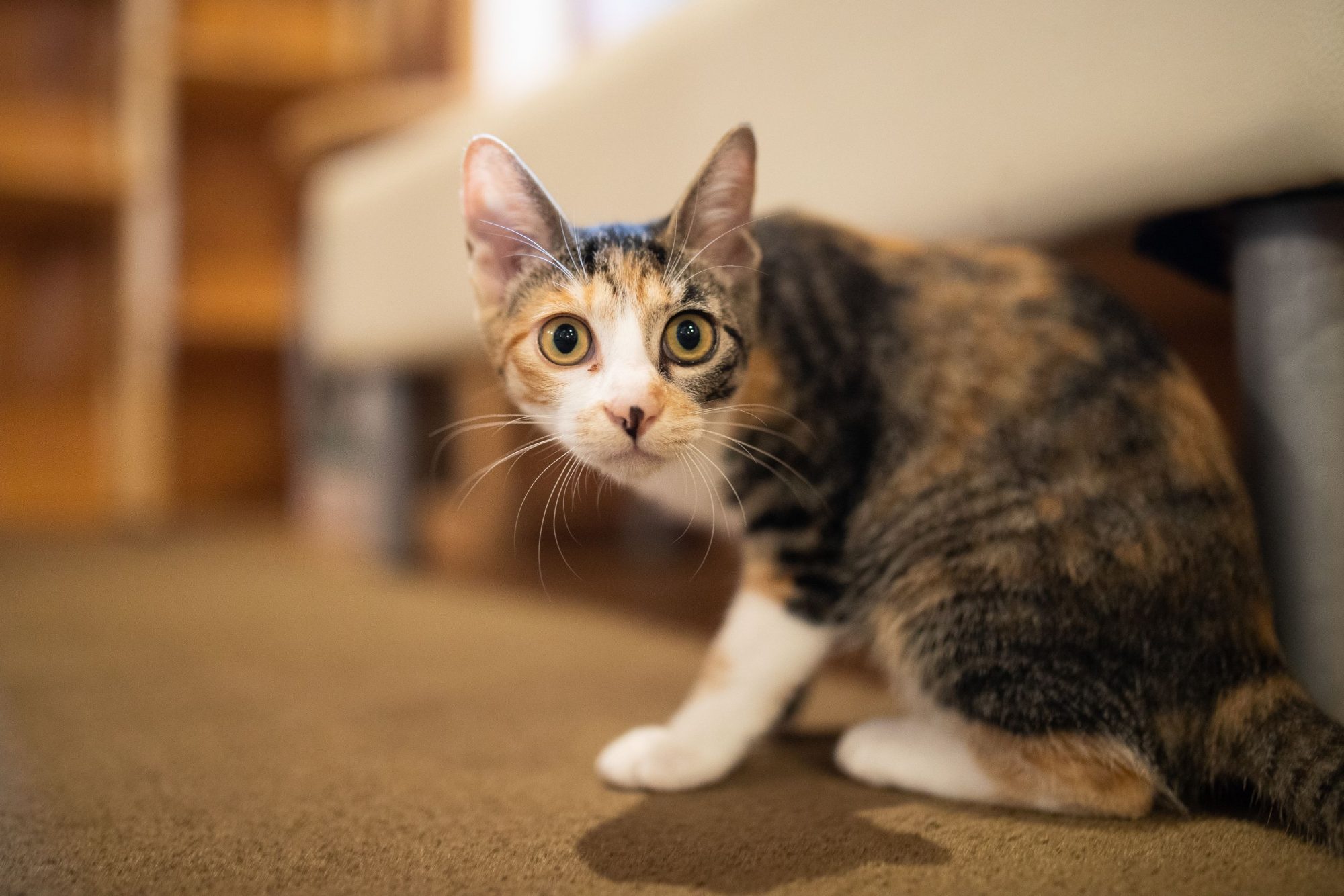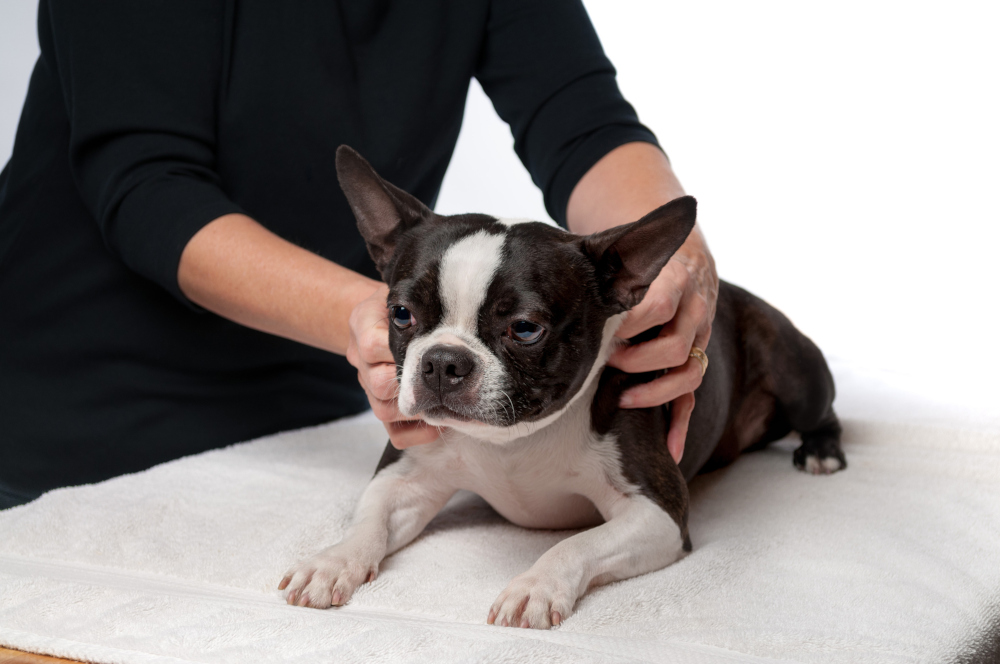Keeping Your Cat Calm At Vet Visits

Keeping your cat calm during vet visits can be challenging. But with some preparation and care, you can make the experience less stressful for both of you. Below are tips to make the visit to the vet more tolerable.
Fight or Flight Response
Cats are independent and territorial animals and they dislike being removed from their familiar environment. They prioritize safety and survival, so any disruption to their routine can trigger their fight-or-flight response.
Petting-Induced Aggression
Some cats may suddenly become aggressive when being petted or touched by unfamiliar people or held in uncomfortable positions.
An anxious, fearful cat can make it difficult for our veterinarian to properly perform a physical exam, a nail trim, administer a medication or diagnostic test. This limits the care that the veterinary team can safely provide. In some cases, it may be necessary to sedate a fearful cat for its exam or tests. There are many things that owners can do at home to help their cats respond more calmly to potentially stressful situations.
Tips To Keep Your Cat Calm
Stay Calm
The best thing you can do to help your cat stay calm at vet visits is to remain calm. Cats can sense anxiety and fear in their owners.
Leave The Carrier Out
Keep the carrier in a familiar place at home. Allow your cat to explore it and make it a cozy space with soft bedding, and occasionally place treats or toys inside.
Choose The Right Carrier
Choose a carrier that allows easy access, has good ventilation, and provides a sense of security. A top-loading carrier or one with removable lids can make it easier to get your cat in and out.
Practice Short Trips
Take your cat on short car rides in the carrier, so it becomes accustomed to the experience. Start with brief trips around the block, gradually extending the duration.
Use Calming Products
There is a wide range of products that claim to alleviate anxiety. Ask your veterinarian which product is best for your cat.
- Pheromone Diffusers: Pheromone diffusers release a calming pheromone spray that helps your anxious cat relax.
- Calming Treats: Calming your cat may be as simple as feeding it a special treat. Simply offer the treats 30 minutes before a trip to the veterinarian, a long car ride, during a thunderstorm, or in any other situation that stresses your cat.
- ThunderShirt: Known for helping dogs with anxiety caused by fireworks and thunderstorms, can be just as effective for cats. If you find comfort in sleeping under a weighted blanket, imagine how reassuring a ThunderShirt can be for your cat. This weighted wrap gently applies consistent pressure to your cat’s body, promoting a sense of calm.
- Cat Calming Collars: Infused with pheromones, the collar mimics those that mother cats produce to calm and soothe kittens, and they can also help to calm adult kitties.
At The Vet’s Office
Schedule your appointment for a time when the clinic is usually quieter. Bring a familiar towel and your cat’s favorite treats. If you can, wait in the car rather than the reception area, and bring your cat straight to the examination room when the vet or nurse is ready to start.
Talk To Your Veterinarian
If you or the veterinary team are concerned about your cat’s anxious behavior, schedule an appointment with our Behavior Specialist in advance of your cat’s visit. Coaching on the above techniques and other methods that help cats react calmly in anxiety-inducing situations can lead to happier, less stressful visits for your cat and for you. Consider scheduling your cat for a private consult customized to your cat’s specific fear behavior needs.
Striving for Happy Visits
At Lone Tree Veterinary Medical Center, we’re here to help pets, whether it’s for an annual exam, illness, injury or other reason, and it’s important that visits are not overly stressful for pets or their human companions. Hopefully, these tips will be useful and, as always, please contact us if you need additional assistance helping your cat with its next visit to see us.



